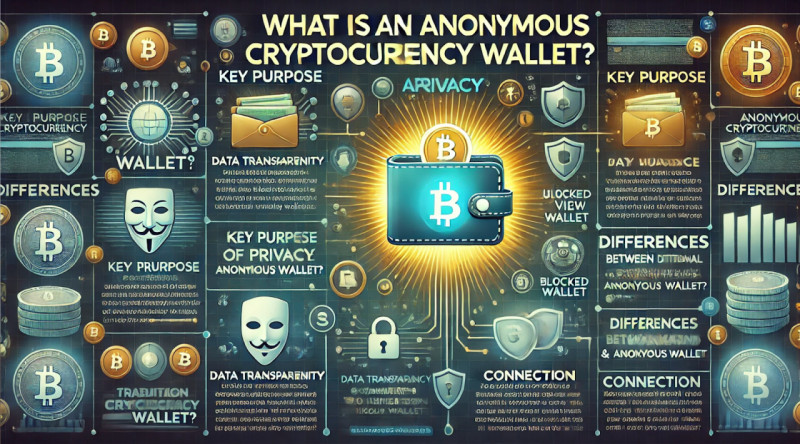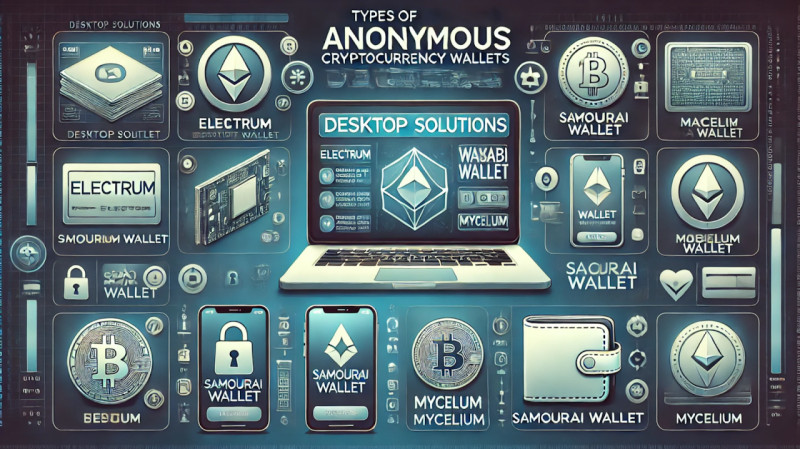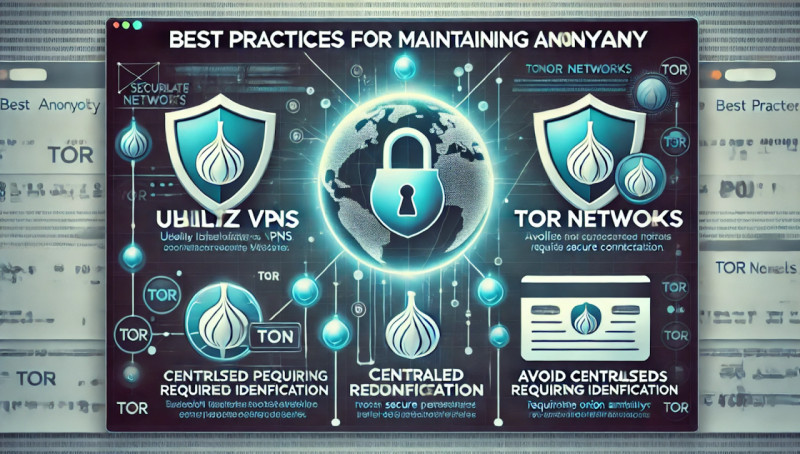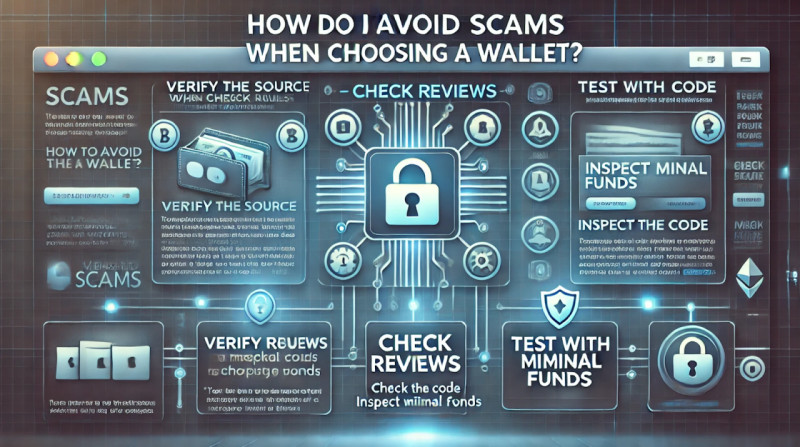
The increasing reliance on digital transactions has brought privacy concerns to the forefront. With the blockchain’s transparent nature, every transaction can potentially reveal personal details. For individuals seeking to protect their financial data, using an anonymous bitcoin wallet is essential.
This type of bitcoin wallet minimizes exposure as well as ensures sensitive information remains hidden, letting users manage their funds without leaving a digital footprint. Whether for personal safety, financial discretion, or general privacy, these tools address a growing need in the digital era.
The Rising Need for Privacy
In today’s interconnected world, data has become a valuable commodity. From social media platforms to online shopping sites, personal information is constantly collected and analyzed. Financial transactions are no exception, with every transfer potentially linked back to the user.
For individuals prioritizing discretion, maintaining anonymity is no longer just a preference — it’s a necessity. A wallet offering anonymous features ensures that users can make transactions without sharing identifying details, reducing the risks of identity theft, financial profiling, or unwanted surveillance.
Why Users Seek Discretion
People opt for prioritizing privacy for various reasons, many of which stem from a desire for maintaining control over their personal information:
- Avoiding data profiling: in an era where companies track, analyze every financial decision, having a wallet that keeps transactions private helps users maintain independence.
- Reducing risks of cybercrime: exposing sensitive financial information can make users targets for phishing, hacking, or other malicious activities. Keeping transactions untraceable minimizes these risks.
- Operating in restrictive environments: in regions with stringent regulations or financial oversight, anonymity can provide users with the freedom to manage their finances without undue interference.
- Enhancing personal safety: high-profile individuals, activists, or anyone managing significant funds may seek privacy to avoid becoming a target for theft or exploitation.
An anonymous wallet provides a layer of security that conventional options may lack. It ensures that personal as well as financial data remains separated from public records, creating a safer, more autonomous financial experience.
Balancing Privacy and Security
While the desire for anonymity is understandable, balancing it with robust security is critical. A poorly chosen wallet could compromise safety, leaving users vulnerable to fraud or asset loss. Modern wallets designed for privacy incorporate advanced encryption, decentralized structures, stealth features for providing anonymity without sacrificing protection. These features include hidden transaction paths, address rotation, compatibility with privacy-focused networks, ensuring comprehensive coverage against potential threats.
The Role of Anonymous Wallets in Today’s Economy
As digital assets become mainstream, the importance of privacy-focused instruments continues to grow. Anonymous crypto storages empower users to participate in the digital economy without compromising personal information. Unlike traditional financial systems, which often require extensive identification along with reporting, these tools offer a streamlined alternative for transferring as well as storing funds discreetly. For businesses, activists, or individuals valuing discretion, an anonymous wallet is more than a convenience — it’s an essential instrument for navigating today’s economy safely.
Empowering Financial Freedom
Choosing the right wallet can enhance independence along with confidence. It lets users retain full control over their funds while ensuring transactions are invisible to external parties. This freedom fosters trust, provides a solid foundation for exploring the digital asset space without fear of exposure or external monitoring.
An anonymous bitcoin wallet serves as a critical gateway for those who prioritize discretion. Whether protecting personal data or seeking greater autonomy, these instruments align with modern demands for privacy as well as security. By combining functionality with advanced protection, they ensure users can navigate the digital landscape with confidence as well as peace of mind.
What Is an Anonymous Cryptocurrency Wallet?
An incognito crypto wallet is a specialized tool for managing digital assets while maintaining discretion, reducing the risk of personal data exposure. Unlike conventional options, these wallets are designed with features that minimize traceability, making them ideal for users seeking to protect their financial privacy. They emphasize keeping transactions unlinkable to individual identities, shielding users from prying eyes as well as potential misuse of sensitive information.

Key Purpose of Anonymous Wallets
The core function of an anonymous wallet is to limit the connection between a user’s digital activity along with their real-world identity. By doing so, these wallets guard against risks such as surveillance, tracking, or data breaches. This enhanced privacy appeals to individuals who prioritize maintaining control over their finances without sacrificing confidentiality.
In today’s environment of widespread data collection as well as breaches, anonymous wallets offer a critical layer of protection. They prevent unauthorized entities from accessing transaction histories or leveraging personal information for malicious purposes. These instruments also enable users to engage in decentralized systems without exposing their identities, fostering trust along with autonomy in financial dealings.
Differences Between Traditional and Anonymous Wallets
Anonymous wallets stand apart from conventional options in several important ways:
Data transparency
- Traditional wallets often require the connection to platforms that follow regulatory requirements, such as Know Your Customer (KYC) policies. These systems can tie transactions to specific individuals.
- Anonymous wallets bypass these connections, ensuring no personally identifiable data is linked to transactions. This obfuscation makes it harder to associate payments with users.
Usage tracking
- Conventional wallets might keep logs of user activity, creating a record that could be accessed or exploited.
- Anonymous wallets avoid keeping logs altogether, ensuring there is no trail for tracking purposes.
Connection to platforms
- Traditional wallets are frequently tied to centralized exchanges, where users must verify their identities for trading or transferring funds.
- Anonymous wallets often operate with decentralized platforms, offering greater autonomy as well as reducing reliance on third-party services.
Pseudonymity vs. True Anonymity
Bitcoin transactions, by default, are pseudonymous. While transactions do not display explicit personal information, they are recorded publicly on the blockchain, creating a ledger accessible to anyone. Given enough data points, patterns in activity can reveal identifying details.
Anonymous wallets address closing the gap between pseudonymity and full anonymity by leveraging advanced privacy features:
- Address rotation: these instruments generate unique receiving addresses for each transaction, making it difficult to trace payments back to a single source.
- Transaction mixing: by combining transactions from multiple users, these wallets obscure the flow of funds, complicating efforts to track their origin as well as destination.
- Onion routing: routing communications through encrypted nodes, such as those provided by the Tor network, anonymizes the user’s IP address, prevents geolocation.
- Integration with privacy coins: anonymous bitcoin wallet often support tokens like Monero or Zcash, which are designed with privacy as a core feature. These coins conceal transaction details, offering another layer of confidentiality.
Why Users Opt for Anonymous Wallets
Anonymous wallets serve a diverse range of users who value discretion in financial transactions.
- Digital privacy enthusiasts: Individuals concerned about their online presence along with digital footprint benefit from instruments that reduce exposure.
- Activists and journalists: those operating in regions with restrictive laws or surveillance rely on anonymity for protecting themselves as well as their work.
- Investors with large holdings: high-net-worth individuals use these wallets to minimize risks associated with theft, extortion, or unwanted attention.
Beyond these specific groups, anyone who values financial autonomy can appreciate the benefits of an incognito crypto wallet. These instruments provide peace of mind by reducing the likelihood of data breaches, surveillance, or interference. By prioritizing discretion, users can focus on managing their assets without fear of compromise.
In a world where privacy is increasingly scarce, anonymous wallets offer a vital solution for safeguarding digital transactions. Their advanced features as well as focus on user confidentiality make them an essential tool for navigating decentralized systems securely and discreetly.
Benefits of Using an Anonymous Cryptocurrency Wallet
Protecting personal data along with transaction details in the digital landscape is increasingly important. Instruments designed for maintaining confidentiality provide users with vital safeguards in an era where surveillance as well as cyberattacks are prevalent. A tool like incognito crypto storage empowers individuals by prioritizing confidentiality along with security in financial dealings. Below are the key advantages.

Enhanced Confidentiality: Shielding Identity and Transactions
Confidential instruments obscure personal details, ensuring that sensitive information is not linked to a user’s transactions. Public ledgers record digital exchanges, without measures to mask identifiable data, it becomes relatively easy for external parties to track activity.
Identity protection: such tools conceal user credentials by minimizing exposure to public databases. This is crucial for individuals who value discretion in managing their funds.
Untraceable transactions: mechanisms like address rotation or coin-mixing make it difficult to establish a connection between a user and their activities. Advanced methods obscure transaction trails, ensuring better protection against external scrutiny.
Defense Against Cyber Threats
The risks associated with digital theft as well as fraud make confidentiality-focused solutions more appealing. Concealing sensitive data makes users a harder target for malicious actors.
- Hacking prevention: by hiding identifiable information, these solutions reduce the likelihood of targeted cyberattacks. Hackers typically prey on visible vulnerabilities, anonymous instruments make it harder to pinpoint potential victims.
- Phishing resistance: users who minimize exposure face fewer phishing attempts. Fraudulent entities are less likely to target users whose financial activities cannot be tracked or identified through public data.
- Limited data collection: without a clear link to personal information, any compromise in data integrity is less harmful. Instruments focusing on confidentiality ensure minimal retention of sensitive data, thereby reducing risks.
Avoidance of Oversight and Jurisdictional Challenges
Many individuals encounter barriers to accessing financial networks due to regulations or restrictions. Tools designed for discreet transactions help users navigate these challenges with fewer complications by using an anonymous bitcoin wallet.
- Censorship resistance: confidential instruments empower individuals in regions with stringent financial controls. By concealing transaction details, users can bypass unnecessary restrictions while remaining compliant with ethical practices.
- Freedom from oversight: third-party intermediaries often impose conditions that limit how individuals manage their resources. These solutions ensure that users maintain control, letting them transact based on personal preferences without interference.
- Access in restricted areas: discreet solutions enable users in highly regulated areas to participate in global financial systems without fear of exposure or discrimination.
Empowering Financial Freedom
Using instruments focused on confidentiality fosters greater independence in financial decisions. Users retain full control over their resources without relying on intermediaries or revealing sensitive details.
- Unrestricted transactions: users can move resources across borders without triggering unnecessary scrutiny, facilitating seamless, flexible management.
- Improved security layers: with additional protection mechanisms, these solutions provide a more secure environment for managing digital assets, catering to both everyday users as well as long-term holders.
Confidentiality is a foundation of financial independence. By embracing solutions like an incognito crypto wallet, users safeguard their personal data, reduce vulnerabilities, navigate global systems without compromising their integrity. These benefits highlight why more individuals are turning to discreet options in the evolving digital economy.
How Anonymous Cryptocurrency Wallets Work
Maintaining discretion in digital transactions requires instruments along with practices that obscure identity as well as activity. Tools designed for anonymous asset management provide layers of safeguards to protect users from prying eyes. Knowing the mechanics behind these instruments can help users make informed decisions about their financial privacy.

Key Mechanics Behind Anonymity
Anonymous asset management hinges on several foundational elements that enable users to retain control without exposing identifying information.
- Private key control:
Non-custodial instruments are at the heart of anonymity. Unlike custodial platforms that manage access keys on behalf of users, these solutions ensure the holder alone controls private credentials. This autonomy eliminates reliance on intermediaries, reducing exposure to data breaches or government scrutiny. With private keys in hand, the individual can independently authorize transactions.
- Encryption protocols:
Advanced cryptographic methods secure sensitive information, ensuring no unauthorized party can intercept or decipher transaction data. Encryption shields communication between the user and the distributed ledger, ensuring activity remains visible only as pseudonymous public entries without revealing personal details.
- Non-custodial structure:
Platforms that operate without keeping user information further strengthen anonymity. By avoiding Know Your Customer (KYC) protocols, non-custodial solutions eliminate the need for users to share identification, ensuring transactions remain disconnected from personal profiles.
Address Rotation and Anonymity
Each transaction is assigned a unique identifier — known as an address — on the blockchain. For minimizing traceability, many instruments incorporate address rotation, automatically generating a fresh identifier for every incoming transfer.
- How it works:
When someone sends digital assets, the tool provides a one-time-use identifier instead of reusing existing ones. This rotation prevents external observers from linking multiple transactions to a single source.
- Why it matters:
Reused addresses expose patterns that adversaries or surveillance agencies can exploit to map user activity. Address rotation as the alternative to using an anonymous bitcoin wallet ensures that even if public records are analyzed, transactions appear isolated rather than connected to a single individual.
Coin Mixing Services
Beyond basic features, additional techniques enhance privacy by obfuscating transaction histories. Coin mixing services, often integrated into certain platforms, let users pool assets with others, effectively scrambling origins as well as destinations.
- The process:
Users send their funds to a communal pool, where they are blended with contributions from other participants. Once mixed, participants receive the same amount they entered but sourced from multiple other contributors. This randomization eliminates clear pathways, breaking links that could trace back to the user.
- Impact on privacy:
Mixing makes it significantly harder to identify where funds originated or where they were sent. It is particularly valuable for high-value transfers or individuals operating in jurisdictions with invasive surveillance practices.
- Potential concerns:
While effective, users must ensure they select trusted services. Some poorly designed or malicious mixers can inadvertently log transactions, undermining the intended privacy benefits.
Importance of Combining Techniques
Using a single method, such as address rotation or coin mixing, may provide basic safeguards, but combining these features amplifies protection. For instance, pairing non-custodial solutions with rotation mechanisms ensures minimal visibility into spending patterns. Meanwhile, integrating mixing services adds an extra layer, making analysis nearly impossible.
Conclusion
An incognito crypto wallet operates through a combination of cryptographic safeguards, non-custodial access, obfuscation techniques like address rotation as well as mixing. Together, these features empower users to conduct transactions without exposing their identity or financial habits. By knowing and implementing these mechanics, users can take control of their digital footprints as well as protect their financial freedom.
Types of Anonymous Cryptocurrency Wallets
An incognito crypto wallet offers various forms adjusted for specific user preferences and needs. From desktop applications to hardware devices, each type provides unique features that enhance security as well as minimize exposure. Below is an in-depth exploration of the most common types available today.

Desktop Solutions
Desktop instruments are software programs installed on personal computers, offering robust features for maintaining discretion. These platforms often integrate advanced tools for masking user data, making them popular among privacy-focused individuals.
Electrum with privacy plugins. Electrum is a lightweight option that offers flexibility for users looking to prioritize confidentiality. With added plugins like coin-mixing services or Tor network compatibility, it lets users obscure transaction histories, mask their IP addresses.
| Advantages | Limitations |
| Lightweight, fast | Requires technical knowledge for maximizing anonymity |
| Customizable with privacy enhancements | Lacks mobile accessibility, limiting on-the-go transactions |
| No third-party dependency for managing funds |
Wasabi Wallet. A dedicated tool for confidentiality, Wasabi offers built-in CoinJoin technology, enabling users to blend their transactions with others for obscuring origins.
| Advantages | Limitations |
| Native privacy instruments requiring minimal configuration | Only supports Bitcoin |
| Open-source, community-supported | Moderate learning curve for new users |
Mobile Applications
Smartphone-based solutions cater to users who prioritize portability without compromising their need for discretion. These instruments enable seamless, private transfers on the go.
Samourai Wallet. Built exclusively for individuals valuing confidentiality, this anonymous bitcoin wallet uses features like stealth mode, which hides wallet details even on the device, and Ricochet, which prevents blockchain analysis tracking.
| Advantages | Limitations |
| Tailored privacy features | Limited to Android devices |
| Dynamic fee adjustments for optimizing transaction costs | Geared towards advanced users |
| Supports Tor for anonymous network communication |
Mycelium. Known for its flexibility, Mycelium integrates various privacy features like Tor support along with compatibility with hardware wallets.
| Advantages | Limitations |
| Suitable for both casual and advanced users | Steep setup process to enable full anonymity. |
| Offers options for integrating offline storage |
Hardware Solutions
Hardware devices offer the highest level of security by keeping private keys offline, but some can also incorporate features aimed at preserving confidentiality.
Ledger devices with privacy enhancements. Ledger hardware tools, when paired with privacy-centric software like Wasabi Wallet, enable users to anonymize their holdings while keeping private keys secure.
| Advantages | Limitations |
| Offline protection against hacking | Requires pairing with additional software for full anonymity |
| Supports multiple currencies and integrations | More expensive than other solutions |
Coldcard. Designed with advanced users in mind, Coldcard combines air-gapped technology with multisignature setups, ensuring maximum discretion.
| Advantages | Limitations |
| Fully offline with no network exposure | Not beginner-friendly |
| Multisig support for added protection | Lacks mobile compatibility |
Paper Solutions
Paper-based storage offers an offline method that eliminates digital traces entirely. Users generate and print private and public keys, storing them physically.
BitAddress.org for offline generation. Using instruments like BitAddress.org, individuals can create keys offline, minimizing exposure.
| Advantages | Limitations |
| Free, simple to use | Vulnerable to physical damage or theft |
| Immune to online hacking | Difficult to use for frequent transactions |
Durable materials. For longevity, keys can be etched onto metal plates, protecting them from fire or water damage. While this adds cost, it ensures long-term usability.
Browser-Based Tools
Lightweight browser solutions cater to users seeking immediate, hassle-free access while maintaining discretion.
Wasabi Wallet (browser version). Wasabi’s browser-friendly interface brings CoinJoin functionality to users seeking convenience.
| Advantages | Limitations |
| No software installation required | Limited offline functionality |
| Accessible from multiple devices | Not as secure as hardware solutions |
Each of these types aligns with unique user needs, from long-term storage to daily transactions. Selecting the most appropriate option depends on how much control, accessibility, confidentiality a user seeks. The incognito crypto wallet that best suits your goals will balance security with ease of use, ensuring seamless as well as private digital transactions.
Features to Look for in an Anonymous Cryptocurrency Storage
Choosing a solution that prioritizes discretion as well as reduces traceability requires careful attention to key attributes. An ideal incognito crypto wallet should provide instruments that obscure transaction data, enhance personal control, limit exposure to external scrutiny. Here are the critical features to evaluate when selecting the right option.

Address Obfuscation
Hiding transaction details is a foundation of financial privacy. Effective solutions employ techniques that obscure the origin along with destination of transfers.
- Coin mixing services:
Coin mixing, also known as tumbling, blends multiple transactions, making it difficult to trace funds back to their source. An anonymous bitcoin wallet integrated with mixing services automatically masks transfers by pooling coins with those from other users as well as redistributing them in smaller, randomized transactions. This process disrupts direct links between sender and receiver.
Example tools: services like Wasabi Wallet or JoinMarket excel in providing built-in coin-mixing capabilities.
- Address rotation:
Generating a new receiving address for every transaction ensures that no single address is repeatedly associated with a user’s activity. Wallets with automatic address rotation minimize the risk of linking multiple transfers to a single user.
Address obfuscation is essential for reducing visibility into spending patterns as well as protecting financial independence.
Open-Source Technology
Transparency in the underlying code ensures that the wallet operates without hidden vulnerabilities or potential surveillance mechanisms.
- Verifiable codebase:
Open-source wallets allow independent reviews by developers, cybersecurity experts. This transparency ensures the solution has no backdoors or hidden data-sharing functions. Look for wallets with active development communities as well as consistent updates.
- Customizability:
Many open-source options offer users the ability to modify or audit the software, tailoring features to meet individual requirements.
Wallets built on open-source technology provide confidence in their design, ensuring users remain in full control of their data.
Lack of KYC Requirements
Solutions that do not enforce identity verification processes eliminate unnecessary data exposure.
- Avoid centralized gatekeepers:
KYC processes require users to share personal information like government-issued identification, phone numbers, or email addresses. While necessary in some financial settings, they create vulnerabilities by linking transactions to a specific identity.
Non-custodial wallets that skip these requirements ensure greater user autonomy along with reduced risk of data breaches.
- Peer-to-peer functionality:
Some platforms facilitate direct exchanges between users without intermediaries, further enhancing transactional discretion.
Choosing a solution free from verification requirements helps retain anonymity as well as minimizes the chances of third-party data compromises.

Compatibility with Privacy-Enhancing Technologies
Effective tools integrate seamlessly with additional safeguards that enhance user discretion.
- Tor network integration:
Compatibility with the Tor browser anonymizes internet traffic by routing connections through multiple relays. Wallets using Tor mask users’ IP addresses, making it difficult for third parties to monitor activity.
- VPN compatibility:
Virtual Private Networks encrypt internet traffic, further obscuring online activity. Wallets optimized for use alongside VPNs offer layered protection.
Leveraging these technologies ensures data remains private throughout transactions as well as interactions.
Multi-Signature and Advanced Encryption
Robust security measures add an essential layer of protection to anonymous wallets.
- Multi-signature transactions:
Multi-signature functionality requires multiple keys to authorize a single transaction, ensuring no single party can unilaterally access funds. This is especially useful for collaborative or high-value accounts.
- End-to-end encryption:
Encryption ensures that sensitive data is protected from interception during online interactions. Wallets with advanced encryption protocols provide peace of mind by preventing unauthorized access to stored information.
By prioritizing security features, users can maintain anonymity while safeguarding their assets from cyber threats.
The Ideal Combination
A truly effective anonymous bitcoin wallet combines these features to deliver a seamless, secure, private experience. Address obfuscation ensures transactional invisibility, while open-source technology as well as lack of KYC requirements minimize external exposure. Integration with privacy-enhancing instruments like Tor or VPNs further reinforces user discretion. Strong encryption along with multi-signature support ensure secure fund management, creating a well-rounded solution for anyone prioritizing confidentiality.
Best Anonymous Cryptocurrency Wallets in 2024
Finding a bitcoin wallet that prioritizes confidentiality has become a priority for users seeking secure, untraceable transactions. An incognito crypto wallet combines innovative features with robust tools to shield users from intrusive surveillance or data leaks. Below are standout solutions for maintaining financial discretion in 2024, each offering unique strengths for different needs.

Samourai Wallet: Advanced Privacy for Everyday Use
Samourai Wallet is widely respected for its dedication to user confidentiality. Designed with privacy as a core principle, it offers powerful features that obscure transaction details as well as protect against tracking.
- Key features:
- Stealth mode: disguises the app on devices, reducing the risk of detection during searches or theft.
- Stonewall: breaks transaction patterns to thwart blockchain analysis, making it difficult for third parties to track payments.
- Ricochet: adds extra hops to transactions, increasing complexity for trackers.
- Tor Integration: Encrypts internet activity through Tor, further enhancing user confidentiality.
- Best for: individuals seeking daily-use instruments that prioritize untraceable interactions. Samourai’s user-friendly design makes it suitable for beginners while retaining advanced capabilities for seasoned users.
Wasabi Wallet: Coin Mixing at Its Finest
Wasabi Wallet is renowned for its integration of CoinJoin, a privacy-enhancing feature that mixes multiple transactions into a single one. This creates a barrier between the origin and destination of funds, effectively masking transaction histories.
- Key features:
- CoinJoin technology: groups multiple inputs and outputs, making it nearly impossible to trace individual transactions.
- Tor network: routes communications through Tor, shielding users from online surveillance.
- Open source: lets anyone verify the wallet’s integrity, ensuring trustworthiness.
- Best for: advanced users who value transparency as well as advanced privacy tools. Wasabi is particularly suitable for those who want maximum control over their financial information.
Electrum: Versatile with Optional Privacy Enhancements
Electrum has long been a favorite among experienced users because of its lightweight design along with compatibility with advanced features. While not a dedicated incognito crypto wallet by default, it can be configured with privacy-enhancing add-ons.
- Key features:
- Hardware integration: pairs with cold storage devices for added security.
- Customizable privacy settings: lets users connect via Tor or set up CoinJoin transactions.
- Fast and reliable: known for its speed as well as efficiency, even during peak network activity.
- Best for: users who need flexibility and are comfortable configuring additional privacy measures. Electrum offers a balance of power along with user control.

Coldcard: Offline Security for Privacy Enthusiasts
Coldcard is a hardware solution tailored for users prioritizing offline safety. As a cold storage device, it keeps private keys disconnected from networks, virtually eliminating the risk of online attacks.
- Key features:
- Air-gapped operations: never connects to the internet, keeping sensitive data entirely offline.
- Multisig support: works seamlessly in multi-signature setups for added layers of protection.
- Secure element: this anonymous bitcoin wallet keeps keys in an encrypted chip, safeguarding them from physical tampering.
- Best for: long-term holders, users managing significant sums who prioritize maximum protection against both cyber and physical threats.
Mycelium: Mobile Privacy on the Go
Mycelium is a feature-rich mobile app offering an array of tools to maintain discretion without sacrificing convenience. Its focus on mobility makes it an excellent choice for users who prioritize quick, secure access from their smartphones.
- Key features:
- HD wallet support: provides a new address for each transaction, limiting traceability.
- Tor compatibility: adds encryption to all online activities.
- Local trader feature: facilitates peer-to-peer transactions without involving centralized exchanges.
- Best for: mobile users seeking a practical yet secure way to conduct transactions while preserving financial confidentiality.
How to Choose the Right Wallet
Each of these solutions has unique advantages depending on your requirements:
- Daily use: Samourai, Mycelium excel in usability for frequent transfers.
- Advanced privacy: Wasabi, Electrum offer comprehensive instruments for anonymity.
- Offline security: Coldcard is unmatched for those prioritizing cold storage.
Choosing the right tool ensures financial freedom as well as peace of mind. By aligning features with your priorities, you can confidently select the best bitcoin wallet to meet your privacy and security needs.
Setting Up Anonymous Cryptocurrency Storage
An incognito crypto wallet is an essential tool for users seeking discretion along with protection in managing digital funds. It lets transactions remain detached from personal information, reducing the risk of surveillance as well as unauthorized access. Proper setup ensures maximum effectiveness, integrating features that maintain confidentiality while simplifying use.

Step 1: Select the Right Platform
Choosing a reliable platform is the foundation of ensuring your financial activities remain private.
- Research options: look for tools explicitly designed to support anonymity. Key features to prioritize include address rotation, non-custodial operation, compatibility with privacy-focused networks like Tor. Platforms such as Wasabi Wallet, Samourai Wallet, Electrum stand out for their ability to enhance discretion.
- Review user feedback: seek opinions from trusted forums or reviews. Platforms with a proven track record are less likely to compromise sensitive information.
- Open-source solutions: opt for open-source wallets when possible. These instruments offer transparency, letting the community verify their privacy features along with functionality.
Step 2: Download, Install
Downloading and installing a wallet correctly minimizes exposure during the initial setup process.
- Secure the environment: before downloading, ensure you are connected to a trusted, private internet connection. Avoid public Wi-Fi, as it increases the risk of interception.
- Verify sources: always download software from official websites or repositories. Cross-check the platform’s digital signature to confirm the file's authenticity as well as avoid counterfeit versions.
- Install on a clean device: use a device free from malware or unnecessary applications. A freshly installed operating system or a dedicated machine adds another layer of security.
Step 3: Configure Privacy Settings
Maximizing the wallet's privacy features is crucial. Most tools allow customizable settings that align with individual needs.
- Enable Tor integration: instruments like Wasabi Wallet or Samourai Wallet include built-in Tor support. Activating this feature routes transactions through multiple layers of encryption, hiding the user's IP address along with masking the origin of activity in an anonymous bitcoin wallet.
- Address rotation: activate the option to generate a new receiving address for each transaction. This prevents linking multiple transfers to a single identity.
- Disable tracking: turn off settings that could send usage data to developers. While anonymous wallets typically avoid this, double-check the preferences menu to confirm.

Step 4: Add and Manage Funds
After setup, transferring funds requires careful execution to maintain privacy.
- Use clean funds: deposit only funds that do not have an identifiable history tied to your personal information. Mixing services or coinjoin transactions can obfuscate the origin of assets.
- Test with small transfers: begin with a minimal amount to verify the system functions correctly. Use blockchain explorers for checking that the transactions are recorded without compromising anonymity.
Step 5: Test Anonymity
Conduct a thorough review of the setup to ensure your activity remains private.
- Verify IP masking: use tools like IP leak tests to ensure Tor integration is functional. This step ensures your network activity cannot be traced.
- Simulate transactions: send and receive small amounts to confirm that address rotation works as intended.
- Analyze transaction history: use a blockchain explorer for inspecting recorded transfers. Confirm that no patterns or identifiers link your transactions.
Maintaining Privacy Post-Setup
Once the wallet is operational, adhering to best practices is necessary to sustain confidentiality.
- Avoid reusing addresses: always use a new receiving address for every transaction to prevent patterns that reveal user behavior.
- Regularly update software: keep the wallet updated to leverage the latest privacy as well as security enhancements.
- Operate through secure networks: stick to trusted VPNs or Tor for maintaining consistent privacy standards during use.
By following these steps, users can establish a functional incognito crypto wallet, ensuring their financial activities remain discreet as well as protected from prying eyes.
Best Practices for Maintaining Anonymity
Using incognito cryptocurrency storage involves more than selecting the right tool — it requires adopting habits as well as strategies to ensure transactions remain discreet. While blockchain technology offers transparency, it also means transactions are permanently recorded and traceable. By following these practices, you can significantly reduce the likelihood of your activities being linked to your identity.

Utilize VPNs, Tor Networks
One of the simplest as well as most effective ways to mask your activity is by routing your internet connection through privacy-focused instruments.
- VPNs (virtual private networks): these services encrypt your internet traffic, redirect it through a server in a different location, hiding your IP address. Choose a no-log VPN provider that does not retain user activity records, ensuring your browsing remains private.
- Tor browser: this tool reroutes your connection through multiple servers, making it incredibly difficult to trace the origin. Pairing Tor with a VPN adds another layer of protection by ensuring your ISP cannot detect Tor usage.
By combining these instruments, you can hide your online activity, ensuring transactions made through your bitcoin wallet remain harder to trace.
Avoid Centralized Platforms Requiring Identification
Centralized exchanges often require personal information to comply with regulatory requirements, such as Know Your Customer (KYC), Anti-Money Laundering (AML) policies. Using these platforms reduces privacy, as your transactions as well as wallet addresses are directly tied to your identity.
- Decentralized exchanges (DEXs): these platforms allow peer-to-peer trading without requiring personal details, enabling a higher level of privacy along with anonymous bitcoin wallet usage. DEXs typically connect buyers and sellers without intermediaries.
- P2P marketplaces: peer-to-peer services facilitate direct trades between individuals. Many allow communication through encrypted channels, ensuring both parties remain anonymous.
When using any platform, always double-check its credibility, avoid sharing unnecessary details. Privacy-conscious users benefit greatly from decentralized alternatives.
Keep Private Keys, Recovery Phrases Offline
Maintaining strict control over access credentials is essential for anonymity. Your private key as well as recovery phrase are the most sensitive pieces of information related to your bitcoin wallet. If these details fall into the wrong hands, not only can funds be stolen, but your identity could also be compromised.
- Physical storage: write down your recovery phrase, keep it in a secure, offline location. Fireproof safes, metal backups, or secure safety deposit boxes work well.
- Avoid digital storage: keeping private keys or recovery phrases on cloud services, emails, or devices connected to the internet increases vulnerability to hacking or phishing attempts.
- Regularly backup credentials: create multiple copies of key information, keep them in separate secure locations. Test backups periodically to ensure their validity.
Securely managing credentials ensures your funds remain safe as well as reduces the likelihood of identity exposure.
Regularly Rotate Wallet Addresses
Rotating wallet addresses is a powerful way to limit traceability. Using the same address for multiple transactions creates a public record of your activity, making it easier for analysts to link transactions as well as deduce patterns.
- Single-use addresses: some instruments allow the generation of new addresses for every transaction, reducing the risk of connections between transfers.
- Coin mixing services: platforms like Wasabi or Samourai Wallet offer transaction obfuscation, where funds are pooled and redistributed, making it difficult to trace specific amounts back to their origins.
- Avoid reusing addresses: Always generate a fresh receiving address for each incoming payment. This practice ensures your transaction history remains fragmented as well as harder to analyze.
Regular address rotation creates a significant barrier to traceability, protecting both your funds along with identity.
Combine Methods for Enhanced Privacy
No single strategy guarantees complete anonymity, but layering methods provides a more robust shield. For example, using a VPN with Tor, avoiding centralized platforms, rotating addresses ensures multiple barriers between your activity as well as your identity. Combined, these practices make it far more challenging for anyone to link transactions to you.
By diligently following these practices, users of an incognito crypto wallet can confidently transact while maintaining control over their privacy.
Risks and Limitations of Anonymous Cryptocurrency Wallets
Incognito crypto storage provides a layer of privacy for managing digital funds, offering users the ability to shield their identities during transactions. However, with enhanced privacy come unique risks as well as challenges. Knowing these limitations is crucial for anyone considering using such instruments for ensuring proper usage without unintended consequences.

Legal Implications in Different Jurisdictions
While privacy-focused solutions may align with the values of decentralization along with individual freedom, they often face scrutiny from regulators. Laws surrounding digital assets as well as identity protection vary widely, making it essential to comprehend the rules in your region which concern using anonymous bitcoin wallet.
Compliance with local laws: some jurisdictions mandate Know Your Customer (KYC) compliance for digital asset platforms, requiring personal identification to prevent illicit activity. Operating outside these regulations could expose users to legal penalties, even if their activities are legitimate.
Example: Users in countries with strict financial oversight may risk account freezes or fines if caught bypassing compliance requirements.
Perceived association with illicit activity: privacy-enhancing instruments are sometimes unfairly linked to illegal transactions, drawing unwanted attention from authorities. Financial monitoring agencies may flag anonymous transactions for review, even when they involve entirely lawful activities.
Tip: transparency in personal records, coupled with a clear understanding of local financial laws, minimizes these risks.
Increased Complexity Compared to Traditional Tools
Anonymous solutions often involve additional steps to maintain privacy, making them less straightforward than mainstream alternatives. Users must navigate layers of complexity to achieve full anonymity.
Multiple tools required: achieving maximum privacy often requires combining wallets with other instruments, such as Virtual Private Networks (VPNs) or Tor browsers. While these tools collectively obscure identity, they make everyday transactions more complex.
Example: a simple transaction may involve routing activity through multiple networks, creating a steeper learning curve for new users.
Challenges with recovery: anonymous wallets frequently lack centralized recovery options. If private keys or passphrases are lost, users have no way to regain access.
Solution: backups must be carefully managed, kept securely in multiple locations, periodically verified to prevent loss.
The Risk of Deanonymization
Despite their design, privacy-focused wallets are not impervious to threats. With advances in blockchain analysis along with insufficient user vigilance, deanonymization becomes a real risk.
Transaction tracing: blockchain explorers can reveal patterns, linking transactions to individuals if used carelessly. Repeated use of the same address, for example, leaves identifiable trails.
Tip: regularly generate new addresses, avoid reusing old ones to reduce exposure.
Public network vulnerabilities: conducting transactions on unsecured public networks increases the chance of interception. Without secure connections, sensitive data might be exposed to malicious actors.
Precaution: use encrypted networks or trusted VPNs for protection.
Human error: missteps, such as sharing transaction details publicly or using identifiable information, can compromise privacy.
Solution: avoid discussing specific transactions or associated instruments on forums or social media.
Striking a Balance Between Privacy and Usability
While incognito crypto wallets offer unparalleled privacy, they require user diligence as well as an understanding of their limitations. Balancing privacy goals with usability ensures a smooth experience.
Educational investment. Users must familiarize themselves with best practices for protecting identity effectively. This includes researching tools along with staying informed about evolving threats.
Example: joining privacy-focused communities or forums provides access to resources as well as shared experiences.
Customizing the approach. Tailor the level of privacy to match individual needs. For everyday transactions, prioritize ease of use. For sensitive or high-value activities, invest time in advanced privacy measures.
Tip: start small with minimal funds for exploring the nuances of private instruments before scaling usage.
Knowing these risks empowers users to make informed decisions about incorporating anonymous instruments into their financial strategies. By staying vigilant as well as proactive, users can enjoy enhanced privacy while minimizing vulnerabilities while using an anonymous bitcoin wallet.
Frequently Asked Questions About Anonymous Cryptocurrency Wallets

Can Bitcoin Transactions Ever Be 100% Anonymous?
Bitcoin transactions operate on a public ledger, meaning all transfers between addresses are permanently recorded and viewable by anyone. While individual identities aren’t inherently linked to these addresses, analysis tools as well as investigative techniques can sometimes uncover the real-world users behind them. This is where the value of an incognito crypto wallet comes into play, as it introduces layers of obfuscation along with added privacy features that make tracking far more difficult.
However, achieving complete anonymity requires more than simply using a wallet. It involves adopting best practices, such as:
- Avoiding address reuse: generating a new address for each transaction makes it harder for external observers to connect different transfers to a single user.
- Using mixing services: some solutions blend multiple transactions together, obscuring the path of funds.
- Transacting through Tor or VPNs: these instruments hide your IP address, preventing linking online activity to your physical location.
While these measures enhance privacy, achieving absolute invisibility is extremely challenging because of the immutable, traceable nature of blockchain technology. That said, combining various tools as well as techniques can significantly boost your privacy when using a bitcoin wallet.
What Are the Risks of Using Privacy Wallets?
Privacy-focused instruments come with unique challenges, ranging from technical to regulatory issues. Knowing these risks is vital for anyone considering their use.
Regulatory scrutiny: governments along with financial institutions often view privacy-focused tools with suspicion, associating them with illegal activities. Using such services may draw unwanted attention from authorities, even if your intentions are legitimate.
Complex setup: many privacy-oriented instruments require technical know-how to configure and use effectively. Mistakes — like failing to enable key security features — can leave gaps in protection, defeating the purpose of using an incognito crypto wallet.
Service reliability: some wallets rely on third-party services, such as mixing providers, that may become unavailable because of regulatory pressure or technical shutdowns. This could disrupt your ability to maintain privacy consistently.
Scams, fraud: privacy wallets are sometimes targeted by fraudulent actors offering fake or malicious tools. Downloading software from unverified sources or relying on questionable services increases the likelihood of falling victim to scams.
By being aware of these risks as well as taking precautions — like choosing reputable instruments, staying informed about legal landscapes — you can mitigate potential downsides.
How Do I Avoid Scams When Choosing a Wallet?
The increasing demand for privacy has led to the proliferation of fake or malicious tools masquerading as legitimate solutions. Protect yourself by following these guidelines:

Verify the source: only download wallets from official websites or app stores. Avoid clicking on random links in forums or emails that claim to offer anonymous wallets.
Check reviews: research the reputation of a wallet through user reviews, industry endorsements, community feedback. Established instruments with a strong track record are more likely to be trustworthy.
Inspect the code: open-source wallets let users inspect their codebase for vulnerabilities or hidden malware. Even if you lack technical expertise, relying on widely reviewed open-source solutions ensures transparency.
Avoid too-good-to-be-true offers: promises of free services, exaggerated privacy claims, or unverified partnerships are often red flags. Be wary of wallets offering unrealistic guarantees of complete anonymity without any proof.
Test with minimal funds: before transferring significant amounts, test the wallet by sending a small amount first. This ensures functionality while limiting potential losses in case of issues.
Conclusion
An anonymous bitcoin wallet is an essential tool for users prioritizing privacy in digital transactions. While complete anonymity is nearly impossible to achieve, comprehending the potential risks as well as adopting trusted instruments can significantly enhance your privacy. Combine a cautious approach with best practices to navigate this space safely, effectively.
Conclusion: Is an Anonymous Cryptocurrency Wallet Right for You?
Incognito crypto storage offers a practical solution for individuals seeking discretion in managing their digital assets. Unlike conventional tools, these options prioritize reducing personal exposure, ensuring users can interact with their funds without unnecessary risks. By minimizing data collection as well as using advanced privacy protocols, these wallets help protect users from potential surveillance, data breaches, misuse of sensitive information.
Key Benefits of Anonymous Wallets
Enhanced protection from surveillance. Traditional digital instruments often require users to complete identity verification processes, leaving personal data vulnerable to breaches. Anonymous solutions sidestep this requirement, letting users interact with their assets without tying transactions to their real-world identities. This is particularly advantageous in regions with strict financial tracking or for those concerned about government scrutiny.
Shielding personal data. Incognito crypto wallets prevent third-party platforms from keeping identifiable information. By avoiding links between user accounts along with financial activity, these instruments reduce the risk of targeted advertising, data resale, unauthorized access.
Support for activists, journalists. People operating in politically sensitive environments benefit significantly from anonymous wallets. These tools enable them to receive or manage funds without exposing their identity, safeguarding their safety along with the confidentiality of their activities.
Who Benefits Most?
Anonymous wallets cater to a wide audience, but some groups may find them particularly essential:
- Privacy advocates: individuals who value data protection and wish to avoid sharing personal information with intermediaries will benefit greatly from these instruments.
- Residents in restrictive regimes: in countries with oppressive financial regulations, anonymous wallets provide an avenue for economic freedom, enabling users to bypass restrictions safely.
- Freelancers, entrepreneurs: independent workers managing international payments may prefer anonymous tools to reduce fees, avoid delays, maintain confidentiality.
Tips for Safely Managing an Anonymous Wallet
To maximize the benefits while minimizing risks, follow these strategies:
Avoid linking wallets to personal information. Always ensure the tool you select does not require identity verification or keep personal data. Avoid using accounts linked to your name or email for maintaining the highest level of discretion.
Use secure networks. Conduct transactions only over trusted, encrypted internet connections. Public Wi-Fi as well as unprotected networks can expose your activities to potential cyberattacks.
Leverage advanced privacy features. Choose options that support address rotation, transaction obfuscation, decentralized exchanges. These features ensure your activity remains untraceable while reducing exposure.
Diversify storage methods. For added protection, combine anonymous wallets with hardware solutions. This dual approach ensures both privacy and robust security for significant holdings.
Stay updated. Cybersecurity threats evolve rapidly. Regularly update your instruments, stay informed about potential vulnerabilities to maintain strong defenses.
Making the Right Decision
Choosing an anonymous bitcoin wallet depends on your specific goals along with concerns. Whether you prioritize discretion, aim to operate in restrictive environments, or seek additional layers of protection for sensitive transactions, these tools can be invaluable. However, balancing anonymity with usability as well as security is crucial. By adopting best practices, you can leverage these wallets effectively while safeguarding your assets. The key is knowing your needs along with selecting a solution that aligns with your lifestyle and values.
Recommended
“How to create a bitcoin wallet”
“How to top up bitcoin wallet”
















